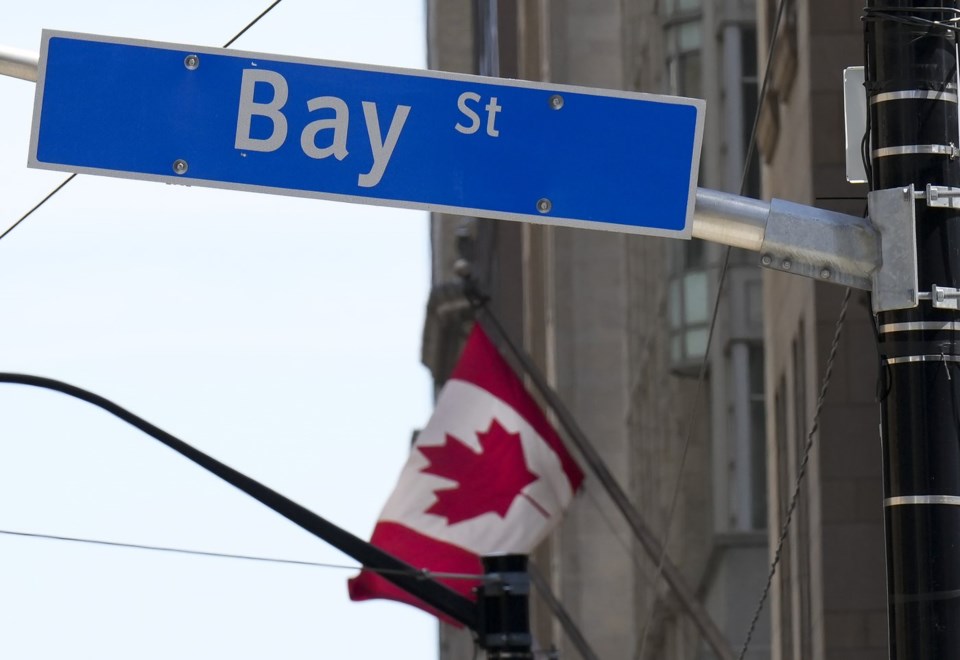TORONTO — Canada's main stock index rose Thursday, helped by strength in energy and utilities stocks, while U.S. markets moved lower ahead of reports on the labour market on both sides of the border.
The S&P/TSX composite index closed up 38.86 points at 25,680.04.
In New York, the Dow Jones industrial average was down 248.33 points at 44,765.71. The S&P 500 index was down 11.38 points at 6,075.11, while the Nasdaq composite was down 34.86 points at 19,700.26.
Friday will bring the monthly jobs reports in both the U.S. and Canada, which markets will be eyeing for clues on upcoming interest rate decisions by central banks, said Kevin Headland, co-chief investment strategist at Manulife Investment Management.
The U.S. Federal Reserve has several key data reports coming before it makes its own decision on Dec. 18, said Headland, including inflation.
Markets are currently leaning toward a quarter-percentage-point cut from the Fed, he said. But “there’s a lot of data for them to digest before the announcement.”
The Bank of Canada’s decision is next week, and Headland said markets seem to think there’s a good chance the central bank could cut by an outsized half-percentage point.
“In my belief, the bank is trying to front-run the mortgage renewals that are coming due over the next year or so, to just avoid some of the bigger hits to discretionary spending,” said Headland.
“There’s no reason for them not to continue rate cuts unless there’s a surprise tomorrow.”
Canadian bank earnings continued to roll in on Thursday.
CIBC saw its profit rise while its provisions for loan losses dropped. TD also saw its profit rise, though its adjusted earnings were lower as the bank continues to work through the fallout from its anti-money laundering deficiencies. Meanwhile, BMO’s earnings were a miss on analyst expectations but the bank said it expects loan performance to improve in 2025.
So far, there haven’t been any major surprises from bank earnings overall, said Headland.
Bitcoin continued its meteoric rise, briefly breaching US$100,000 for the first time after U.S. president-elect Donald Trump tapped crypto advocate Paul Atkins to head the Securities and Exchange Commission.
“US$100,000 is definitely a psychological threshold,” said Headland.
“I guess time will tell whether it can remain at that level,” he added. “If we’re getting downside pressure to risk assets, I would assume that Bitcoin and other companies will be swept up in that negativity.”
But for now, the surge is indicative of the broader positive momentum markets have enjoyed since Donald Trump’s election, said Headland.
The Canadian dollar traded for 71.24 cents US compared with 71.09 cents US on Wednesday.
The January crude oil contract was down 24 cents at US$68.30 per barrel and the January natural gas contract was up four cents at US$3.08 per mmBTU.
The February gold contract was down US$27.80 at US$2,648.40 an ounce and the March copper contract was down a penny at US$4.19 a pound.
— With files from The Associated Press
This report by The Canadian Press was first published Dec. 5, 2024.
Companies in this story: (TSX:GSPTSE, TSX:CADUSD)
Rosa Saba, The Canadian Press



